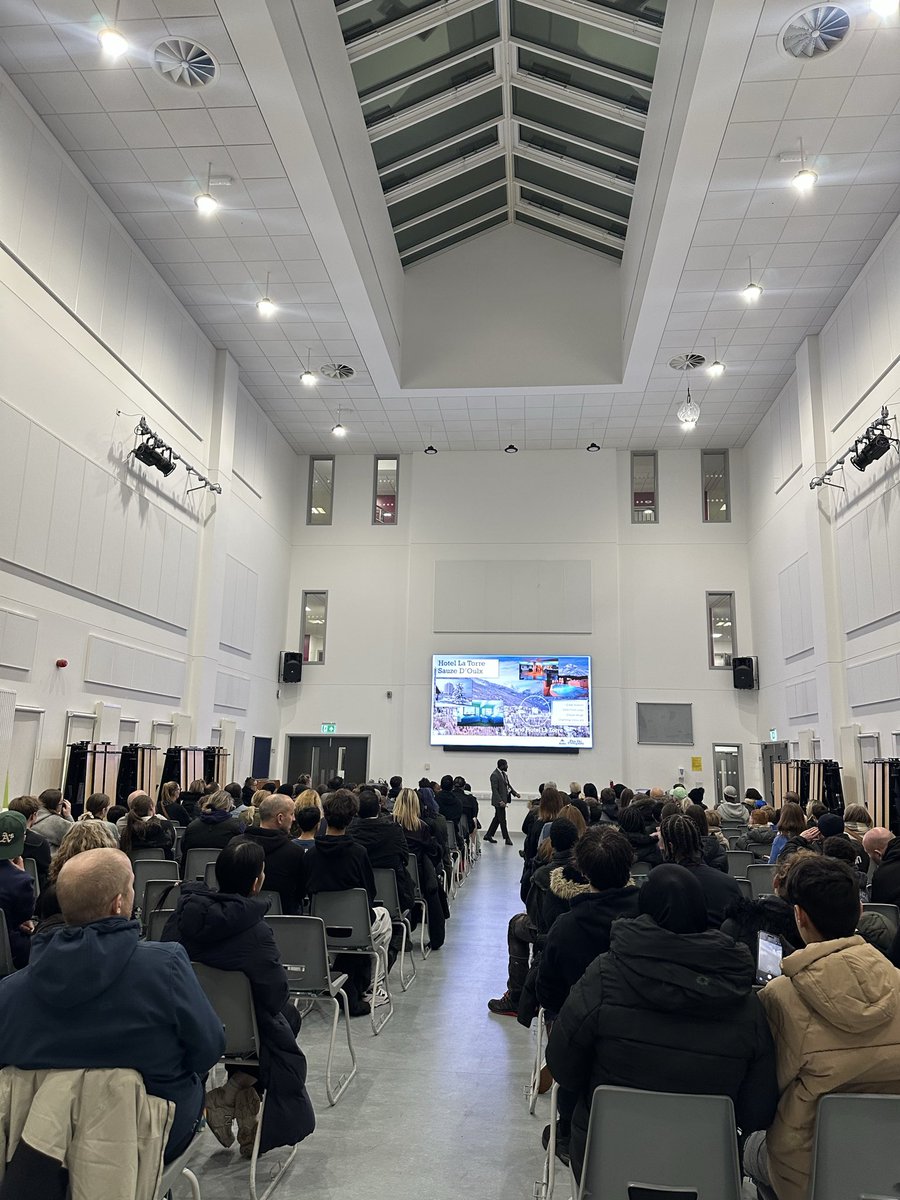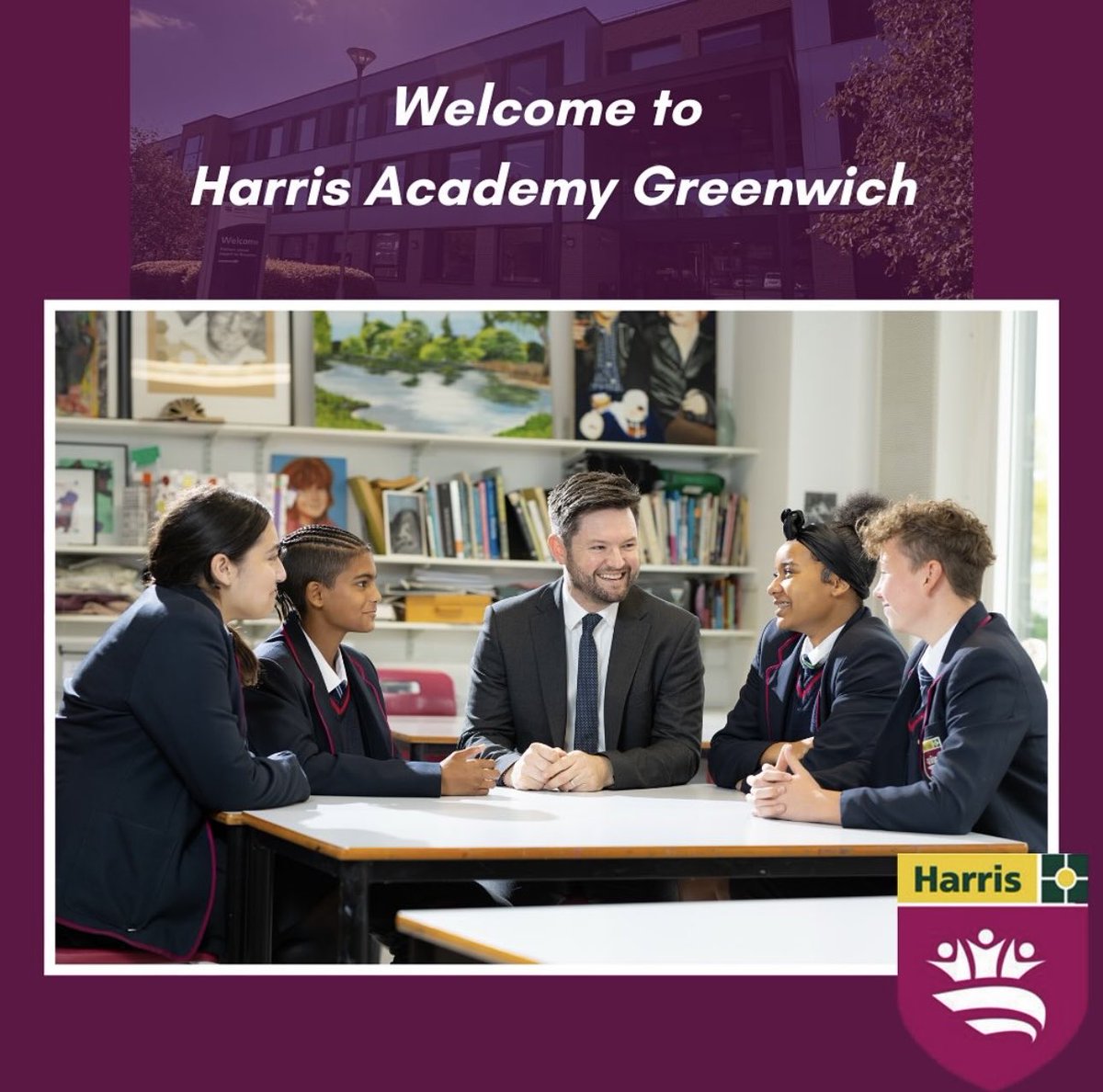Business
Curriculum Narrative – Business
Business at Harris Academy Greenwich is the study of individuals, communities, and organisations, it involves assessing their needs and problems, as well as generating solutions. It considers the interdependent nature of business using models, theories and techniques to support analysis of interactions between business operations, finance, marketing and human resources, as well as the relationship between business and the environment in which it operates.
Business equips students with valuable, transferable skills. As well as subject specific knowledge, students will practice strategic thinking, data interpretation, problem solving, and analysis and evaluation skills. The subject offers a diverse and engaging variety of topic areas which focus on contemporary local, national and international businesses. Students also gain an appreciation for the importance of entrepreneurship in an economy and the societal benefits it brings.
Business offers students powerful knowledge about topics and issues that are relevant in society today, through key modern-day developments such as; digital technology, business ethics and globalisation topics. This therefore offers students the opportunity to gain a truly global perspective of business and in turn benefit from becoming culturally diverse. Students will also acquire knowledge of business structures, factors impacting decision making and theoretical concepts of management. These areas of study will take students beyond their own experiences, contributing to their long-term memory and therefore enabling them to understand these different topic areas as and when they might meet them in the future.
By the end of Business GCSE and A Level, students will have developed their knowledge and interest in the field of Business, to help close the cultural gap that exists in many London schools. Students will have developed analytical and evaluative skills, which will be transferrable across a variety of different subjects, environments and career pathways. In addition, students will have the opportunity to progress to further education, training and employment.
Year 10
Students first encounter Business in Year 10 where the focus is for students to understand key terminology and concepts related to the purpose of business activity, the role of business and enterprise and entrepreneurship, and the dynamic nature of business. Students will commence with developing an understanding of the basic functions of a business. They then develop deeper understanding of the different legal structures businesses can operate under, and depending on this, the varying aims and objectives businesses of different legal structures can work towards achieving.
Throughout this period of developing foundation knowledge in business, students move on to concepts relating to revenue, costs and profit. This builds on some of the quantitative skills students will have learned in KS3 Mathematics such as multiplication, division, addition, subtraction and problem solving. This first unit of learning is followed by an exploration of the importance of external influences on business and how businesses change in response to these influences.
Students then apply their understanding from term one to contemporary business scenarios. Contexts will initially be based on local or national business situations. Students will learn how to apply their knowledge to varying business case studies by explaining key knowledge and concepts in context.
As students progress through Year 10 they will build upon this introductory knowledge. Students will need to develop an understanding of the interdependent nature of the different functional areas of business; operations, human resources, marketing and finance. Therefore, in Year 10 students will be introduced to human resources, its role within business and how it influences business activity. Students will identify clear links from prior learning when they are able to give examples of how business objectives would be split into functional plans (specifically for human resources at this point).
Year 11
When students progress to Year 11 they develop and embed analytical and evaluation skills throughout the year. Opportunities are created regularly for new learning to be applied to business case studies, allowing students to develop examination skills.
The year starts off with a focus on the functional area; operations. Students will learn about what business operations involve, their role within the production of goods and the provision of services, and how they influence business activity.
The second unit of Year 11 is about the functional area, marketing. Students will understand the purpose of marketing, its role within business and how it influences business activity. Students will explore different methods of market research, both quantitative and qualitative, and will use this knowledge and understanding to form appropriate decisions for different types of business. Drawing on Mathematics, students will use their knowledge of tables and charts to develop their interpretation of data skills.
The final unit of learning students will encounter is about the functional area, finance. Students’ skills will draw upon KS3 Mathematics as they learn and apply financial calculations. They will be introduced to new concepts and terminology which will require them to compare current data to historical data, assess the performance of businesses financially and to identify and interpret different components of financial statements.
Throughout the year different case studies will be explored by students, enabling them to apply their learning of key knowledge, theories and concepts. Students will understand the interdependent nature of business operations, human resources, marketing and finance. They will be able to give examples of how business objectives would be split into functional plans, with clear links throughout. Students are able to give clear contextual reasons for conclusions they form and are able to evaluate considering the relative importance of different factors.
Year 12
There are significant links between business at Key Stage 4 and Key Stage 5, allowing students to enhance their enthusiasm for the subject. At the start of A Level Business, students will encounter their first unit; “What is Business?”. This starting point provides students that haven’t studied Business a structured introduction to the subject, with powerful knowledge about the reasons why businesses exist, the relationship between mission and objectives, different business forms, shareholders and ownership, and detailed learning about the external environment that can impact and influence businesses. Students that have already studied Business at GCSE will learn key knowledge and concepts in more depth. Regardless of their prior experience, this unit will equip all students with the foundation knowledge required to progress throughout the course.
Students will then go on to learn about the four individual functional areas of business; marketing, finance, operations and human resources. Each unit will follow a similar structure; students will be introduced to key objectives of each functional area and will explore how internal and external factors can influence objectives being set. Throughout each unit students will learn and apply key knowledge, concepts, theories and models. By doing so, they will be able to explore the interrelated nature of business activities and how they affect competitiveness. Students will be presented with a variety of business contexts to study, for example; large vs. small businesses, UK focused vs global, and service vs. manufacturing sectors.
Throughout the year students will be introduced to examination skills. They will begin with a focus on precise knowledge recall, which will lead on to the introduction and embedding of analysis, followed by evaluation, skills. This will be strengthened and built upon throughout the entire academic year.
Students will use their prior learning from Mathematics through utilising, and building upon, skills such as; probability, ratios, averages, fractions, interpreting index numbers, interpreting a range of standard graphical forms, and the ability to interpret, apply and analyse information in written, graphical and numerical forms. They will learn how to make use of and interpret both quantitative and qualitative information in order to make decisions.
Year 13
When students begin Year 13, students start with a secure knowledge of decision making in functional areas. They then move on to explore and understand the ways in which well-established businesses operate. The year begins with an introduction to the meaning of strategy and the relationship it has with a key year one theme, objectives. Students gain a deeper understanding of internal and external factors that can influence decision-making, which enables them to access more challenging content relating to UK legislation, economic factors, corporate social responsibility, and investment appraisal. Students will now be experts in Year 12 ‘Business Maths’ skills so that they can confidently grasp the key quantitative skills necessary for investment appraisal.
Moving on into the second term, students will look at how businesses choose which markets to compete in and what products to offer. Links between the ‘marketing’ from year 1 can be made in this topic to support understanding. The second half of this term will assess how businesses pursue strategies such as growth, internationalisation, innovation and the greater use of digital technology.
In the final half term before Easter, students will study the concept of ‘managing change’. This unit draws upon key knowledge and theories from year 1, human resources. Building upon this knowledge students will learn about culture and how to manage strategic implementation within the workforce. They will also understand some common problems with business strategy and why they often fail.
Throughout the entirety of Year 13, students will strengthen their contextual understanding of business by understanding business developments and implementing critical thinking about contemporary business issues. Through acquiring a confident grasp of different business contexts, students will be able to understand the key issues in any situation they are presented with and compare and contrast this with other situations and understanding.
Overall, studying A Level Business will provide our students with the exposure they need in order to become analytical thinkers of both written, numerical and graphical information. They will be able to combine information sources to form informed and balanced conclusions. Through learning about various business situations and scenarios, both large scale and small scale/national and international, students will have a strong knowledge and understanding of the diversity of business. Business equips students with transferable knowledge and skills to a variety of contexts and career pathways. They will be able to apply this understanding to everyday life – for example the ability to understand and interpret business related stories in the news. In addition, students are able to study business, or other business related qualifications, in a higher education setting.





















